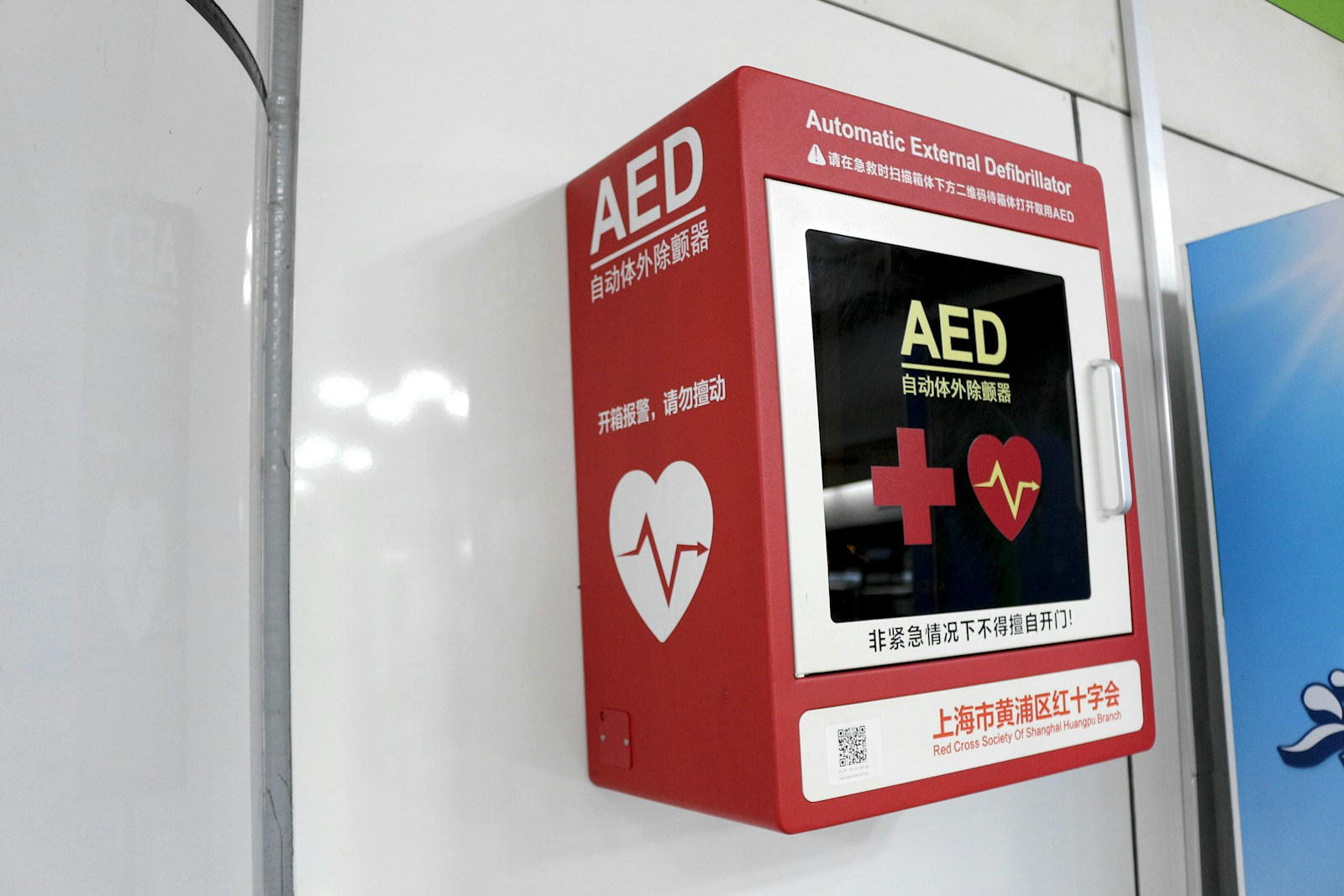Shock-Ready Factories: Telangana Draft Rules Add AED to Factory Medical Kit

Every minute lost after a sudden cardiac arrest reduces the chance of survival by ten percent, yet most factory infirmaries in Telangana still rely on oxygen cylinders and bandage scissors. Sensing an urgent gap, the Labour Employment Training & Factories Department has stepped in with a draft amendment that could make the state the first in the country to legally require an Automatic External Defibrillator (AED) inside every Occupational Health Centre and Ambulance Room. Published on 25 October 2025 as G.O.Rt.No.433, the preliminary notification opens a 45-day public window before the rule becomes enforceable under the Factories Act, 1948.
Table of Contents
The spark behind the file
The trigger was a formal proposal from the Director of Factories, Hyderabad which pointed out that cardiac emergencies are no longer confined to office blocks with ageing staff; even young workers on 12-hour shifts in chemical plants and textile mills are vulnerable. An AED which is a portable, lay person friendly device that delivers a life-saving electric shock can restore heart rhythm in the crucial five minutes before an ambulance arrives, but it barely figures in the present equipment lists of Rules 61 and 64 of the Telangana Factories Rules, 1950. The department concluded that statutory compulsion, not advisory circulars, was the only way to guarantee placement.
What the draft actually changes
The amendment slips in a new entry: “7. Automatic External Defibrillator”. Similarly, Rule 64(3) on Ambulance Room paraphernalia, which presently stops at item-44, will carry an additional “45. Automatic External Defibrillators”. No specifications on brand or model have been inserted. Once the final notification is issued, factories covered by these rules – generally those employing 500 or more workers or carrying hazardous processes – will have to procure and maintain the device at their own cost.
The democratic twist: objections welcome
Section 115 of the Factories Act compels the government to invite objections before any rule is finalised. Accordingly, the notification asks individuals, employers, trade unions, equipment suppliers or even civil-society groups to send written suggestions to the Director of Factories at Maithrivihar Commercial Complex, Ameerpet, Hyderabad within forty-five days of the Gazette copies becoming publicly available. The Law (B) Department will vet every comment; if substantive safety or cost concerns emerge, the draft may be tweaked or even redrafted.
Paper trail and next steps
The Commissioner (Printing, Stationery & Stores Purchase) has been told to bring out an extraordinary Gazette immediately and to despatch twenty copies to the state secretariat and a hundred to the Directorate of Factories for record and circulation. After the objection period expires, a final file will move through the ministerial hierarchy, obtain the Governor’s assent and be re-published as a hard-edged rule enforceable under Section 92 of the Act – breach of which can draw prosecution and fines on the occupier.
Concluding perspective
If the proposal sails through unchallenged, Telangana will join a tiny global club where defibrillators are as integral to shop-floor safety as fire extinguishers. For workers, it means the factory medical room becomes a genuine crash-cart zone; for managements, an upfront cost but a potential lifesaver that could avert costly litigation and downtime. The 45-day clock is ticking and every beat counts.
For further details write to contact@indialaw.in
By entering the email address you agree to our Privacy Policy.



